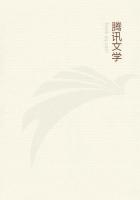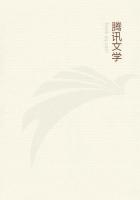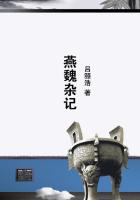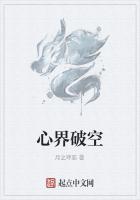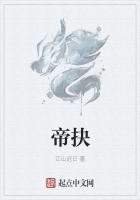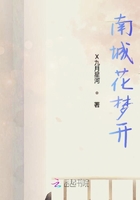IT is curious if one lives long enough to watch the change of taste in books. I have no lending-library statistics at hand, but judging by the reading of young people, or of those who read merely for their amusement, the authors they patronise are nearly all living or very recent. What we old stagers esteemed as classical in fiction and BELLES-LETTRES are sealed books to the present generation. It is an exception, for instance, to meet with a young man or young woman who has read Walter Scott. Perhaps Balzac's reason is the true one. Scott, says he, 'est sans passion; il l'ignore, ou peut-etre lui etait-elle interdite par les moeurs hypocrites de son pays. Pour lui la femme est le devoir incarne. A de rares exceptions pres, ses heroines sont absolument les memes ... La femme porte le desordre dans la societe par la passion. La passion a des accidents infinis. Peignez donc les passions, vous aurez les sources immenses dont s'est prive ce grand genie pour etre lu dans toutes les familles de la prude Angleterre.' Does not Thackeray lament that since Fielding no novelist has dared to face the national affectation of prudery? No English author who valued his reputation would venture to write as Anatole France writes, even if he could. Yet I pity the man who does not delight in the genius that created M. Bergeret.
A well-known author said to me the other day, he did not believe that Thackeray himself would be popular were he writing now for the first time - not because of his *******, but because the public taste has altered. No present age can predict immortality for the works of its day; yet to say that what is intrinsically good is good for all time is but a truism. The misfortune is that much of the best in literature shares the fate of the best of ancient monuments and noble cities; the cumulative rubbish of ages buries their splendours, till we know not where to find them. The day may come when the most valuable service of the man of letters will be to unearth the lost treasures and display them, rather than add his grain of dust to the ever-increasing middens.
Is Carlyle forgotten yet, I wonder? How much did my contemporaries owe to him in their youth? How readily we followed a leader so sure of himself, so certain of his own evangel. What an aid to strength to be assured that the true hero is the morally strong man. One does not criticise what one loves; one didn't look too closely into the doctrine that, might is right, for somehow he managed to persuade us that right makes the might - that the strong man is the man who, for the most part, does act rightly. He is not over-patient with human frailty, to be sure, and is apt, as Herbert Spencer found, to fling about his scorn rather recklessly. One fancies sometimes that he has more respect for a genuine bad man than for a sham good one. In fact, his 'Eternal Verities' come pretty much to the same as Darwin's 'Law of the advancement of all organic bodies'; 'let the strong live, and the weakest die.' He had no objection to seeing 'the young cuckoo ejecting its foster-brothers, or ants ****** slaves.' But he atones for all this by his hatred of cant and hypocrisy. It is for his manliness that we love him, for his honesty, for his indifference to any mortal's approval save that of Thomas Carlyle. He convinces us that right thinking is good, but that right doing is much better. And so it is that he does honour to men of action like his beloved Oliver, and Fritz, - neither of them paragons of wisdom or of goodness, but men of doughty deeds.
Just about this time I narrowly missed a longed-for chance of meeting this hero of my PENATES. Lady Ashburton - Carlyle's Lady Ashburton - knowing my admiration, kindly invited me to The Grange, while he was there. The house was full - mainly of ministers or ex-ministers, - Cornewall Lewis, Sir Charles Wood, Sir James Graham, Albany Fonblanque, Mr. Ellice, and Charles Buller - Carlyle's only pupil; but the great man himself had left an hour before I got there. I often met him afterwards, but never to make his acquaintance. Of course, I knew nothing of his special friendship for Lady Ashburton, which we are told was not altogether shared by Mrs. Carlyle; but I well remember the interest which Lady Ashburton seemed to take in his praise, how my enthusiasm seemed to please her, and how Carlyle and his works were topics she was never tired of discussing.
The South Western line to Alresford was not then made, and I had to post part of the way from London to The Grange. My chaise companion was a man very well known in 'Society'; and though not remarkably popular, was not altogether undistinguished, as the following little tale will attest.
Frederick Byng, one of the Torrington branch of the Byngs, was chiefly famous for his sobriquet 'The Poodle'; this he owed to no special merit of his own, but simply to the accident of his thick curly head of hair. Some, who spoke feelingly of the man, used to declare that he had fulfilled the promises of his youth. What happened to him then may perhaps justify the opinion.
The young Poodle was addicted to practical jokes - as usual, more amusing to the player than to the playee. One of his victims happened to be Beau Brummell, who, except when he bade 'George ring the bell,' was as perfect a model of deportment as the great Mr. Turveydrop himself. His studied decorum possibly provoked the playfulness of the young puppy; and amongst other attempts to disturb the Beau's complacency, Master Byng ran a pin into the calf of that gentleman's leg, and then he ran away. A few days later Mr. Brummell, who had carefully dissembled his wrath, invited the unwary youth to breakfast, telling him that he was leaving town, and had a present which his young friend might have, if he chose to fetch it. The boy kept the appointment, and the Beau his promise. After an excellent breakfast, Brummell took a whip from his cupboard, and gave it to the Poodle in a way the young dog was not likely to forget.

